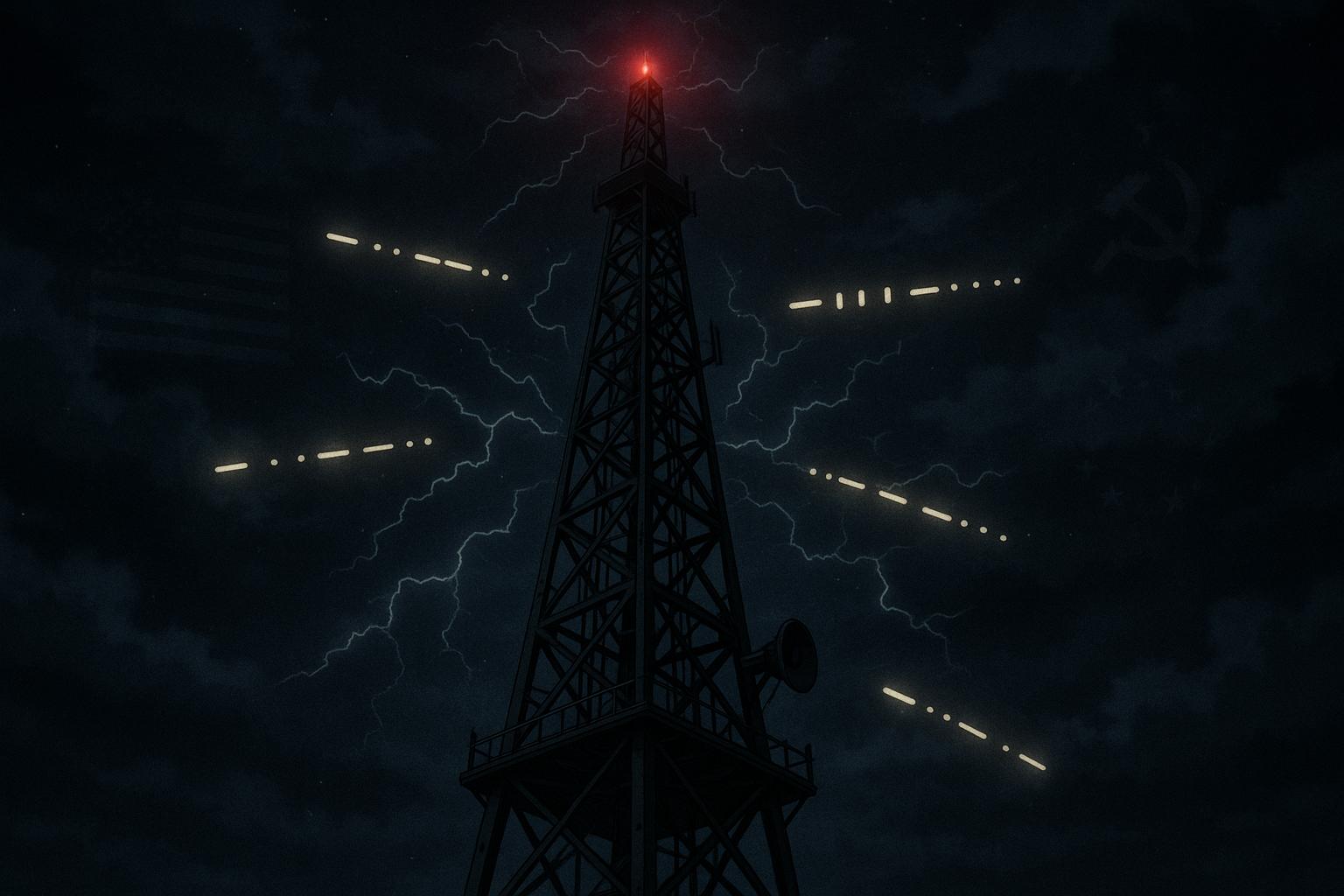A mysterious radio station, ominously dubbed 'Judgment Day Radio,' has captured public attention following a cryptic broadcast that coincided with critical talks between US President Donald Trump and Russian President Vladimir Putin. On May 19, just as the two leaders engaged in a 90-minute conversation aimed at negotiating a ceasefire in Ukraine, the station located approximately 18 miles from Moscow transmitted two coded messages. The sequences 'NZhTI 89905 BLEFOPUF 4097 5573' and 'NZhTI 01263 BOLTANKA 4430 9529' not only raised eyebrows among intelligence officials but also sparked speculation regarding their potential implications.
This peculiar timing of the broadcast has brought renewed scrutiny to the station, also known as UVB-76, or 'The Buzzer.' Since its inception in the late 1970s, UVB-76 has been notable for its relentless buzzing sound, periodically interrupted by voice messages. While the exact purpose of the station remains unconfirmed, it is widely believed to function as part of a Russian military communication network. Some experts suggest it may even serve as a fail-safe mechanism tied to Russia's nuclear command system, often referred to as a 'Dead Hand' or doomsday trigger.
Professor David Stupples, an electronic and radio engineering expert at City, University of London, remarked that the broadcasts likely serve as a contingency plan in the event of nuclear conflict, highlighting the station’s unusual complexity. Unlike standard military transmissions that typically consist of repetitive tones, UVB-76's output includes intricate patterns and variations, which some researchers speculate could encode secret military communications.
The overarching context of the broadcast coincides with a period of heightened military activity and diplomatic manoeuvring. While both leaders described their conversation as "productive," the Kremlin quickly dismissed the notion of a full ceasefire, revealing the tense atmosphere surrounding these discussions. Following the call, Putin lauded Trump’s support for resuming negotiations with Ukraine, yet Russian forces immediately carried out strikes in Kherson, injuring civilians, further complicating the peace talks.
Amid these developments, Trump expressed scepticism in a post on his Truth Social platform, suggesting Putin might not genuinely seek to halt hostilities. He warned of economic repercussions and "very bad punishment" should military actions persist. This sentiment was echoed in the context of previous broadcasts from UVB-76 during other Trump-Putin conversations, raising concerns about the station's potential role in military alerts or broader strategic communications.
Furthermore, reports indicate the station's activity surged prominently in February, aligning with the escalation of diplomatic efforts and military aggression in Ukraine. Many analysts question whether these broadcasts are simply routine or indicative of more profound military signalling amid a landscape fraught with geopolitical tensions. However, a definitive interpretation remains elusive, as experts caution against jumping to conclusions without further evidence of purpose or intent.
The intrigue surrounding 'Judgment Day Radio' continues to grow, with its sinister moniker evoking images of catastrophic scenarios. As officials and amateur radio enthusiasts alike keep a close watch, the airwaves remain filled with a mix of diplomatic tension and the ominous buzz of uncertainty.
Reference Map
- Paragraphs 1, 2, 3, 4, 5, 6, 7: [1]
- Paragraphs 3, 4: [2]
- Paragraphs 1, 4: [3]
- Paragraph 3: [4]
- Paragraphs 1, 2: [5]
- Paragraphs 1, 2: [6]
- Paragraph 1: [7]
Source: Noah Wire Services
